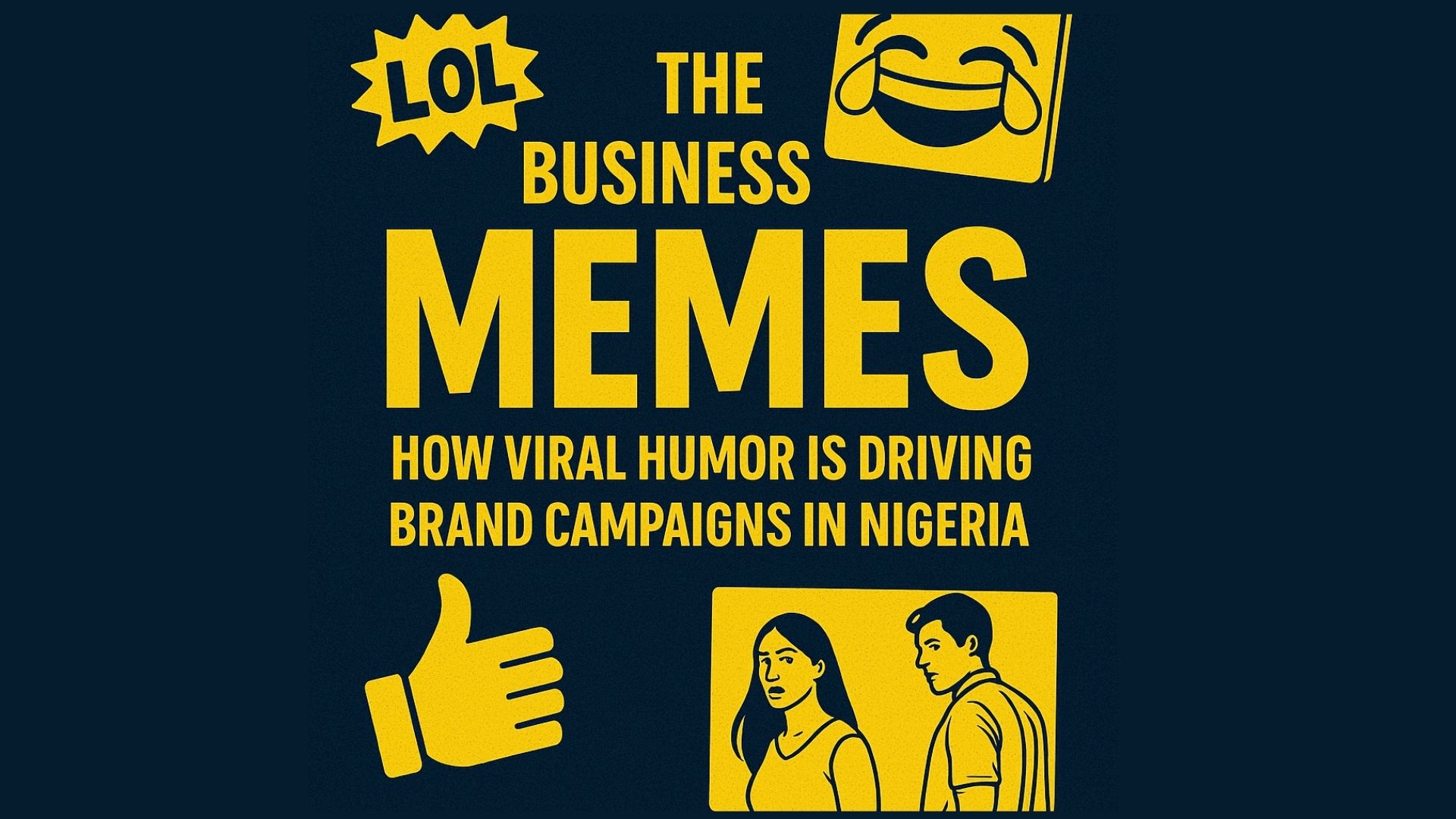In the age of fast-scrolling feeds, one form of content consistently breaks through the noise: memes. What once started as internet jokes shared for laughs has now become a powerful marketing tool. In Nigeria, meme culture is not just entertainment, it’s business. From Twitter to Instagram and TikTok, meme pages are cashing out by partnering with brands and turning humor into serious money.
Why Memes Work
Memes are bite-sized and highly shareable. They thrive on humor, cultural references, and simplicity. Unlike traditional ads that often feel forced, memes feel organic. They are relatable and meet audiences where they already are (laughing, sharing, and scrolling).
For Nigerian audiences especially, memes connect because they reflect daily realities: traffic in Lagos, ASUU strikes, fuel scarcity jokes, and celebrity drama. This relatability makes them perfect vehicles for brand messages.
Meme Pages as Digital Billboards
Popular Nigerian meme pages on Instagram, X (Twitter), and TikTok have hundreds of thousands of loyal followers. These communities are highly engaged, with memes generating more likes, comments, and shares than typical brand posts.
Brands have noticed. Instead of running generic ads, companies now collaborate with meme creators to:
- Insert products into viral jokes.
- Create branded versions of trending memes.
- Launch “soft-sell” campaigns disguised as funny skits or graphics.
The Money Behind the Humor
Meme pages are monetizing in several ways:
- Sponsored Posts – Brands pay for memes featuring their product.
- Affiliate Marketing – Meme accounts push links for e-commerce, betting, or fintech apps.
- Content Licensing – Viral memes get repurposed by brands for official campaigns.
- Merchandise – Some creators sell T-shirts, mugs, and stickers featuring their original memes.
For top pages, a single branded meme post can fetch between ₦100,000 to ₦500,000, depending on reach and engagement.
Case Studies: When Memes Sell
- Fintech Brands: Many Nigerian fintech startups use meme campaigns to educate users on saving, transfers, and cashless payments in a fun, relatable way.
- Music Promotions: Afrobeat stars rely on memes and TikTok challenges to drive virality for new singles.
- Telecoms & FMCGs: Companies like MTN and Coca-Cola have partnered with meme creators to reach Gen Z and millennial audiences in humorous, culturally relevant campaigns.
Challenges of Meme Marketing
- Short Life Cycle: A meme can die out in days, making campaigns time-sensitive.
- Cultural Sensitivity: Jokes can backfire if misunderstood or offensive.
- Attribution: Many memes get reposted without credit, making it hard for original creators to monetize consistently.
The Future of Meme Marketing in Nigeria
Memes are no longer just jokes, they’re currency in the attention economy. With Gen Z audiences driving digital culture, brands that embrace humor and authenticity will continue to thrive. The challenge is to collaborate with meme creators in ways that feel natural, not forced.
For creators, the next step is professionalization, treating meme pages as media companies, not hobby accounts. With better branding, analytics, and negotiation, meme creators can secure long-term partnerships and scale beyond viral posts.
Final Thoughts
The business of memes in Nigeria shows how creativity and humor can translate into revenue. In a world where audiences skip ads but share memes, the smartest brands are literally laughing all the way to the bank.
At OtownGist Media, we see meme marketing as a perfect example of how culture drives commerce in the digital age. Because in Nigeria, if you can make people laugh, you can make them buy.
Article by Ezegbogu Princewill (intern@otowngist)


